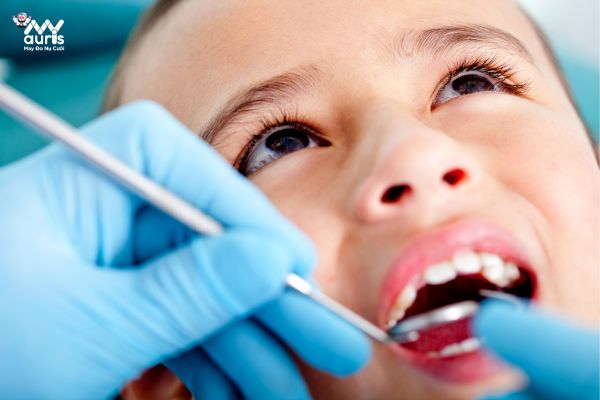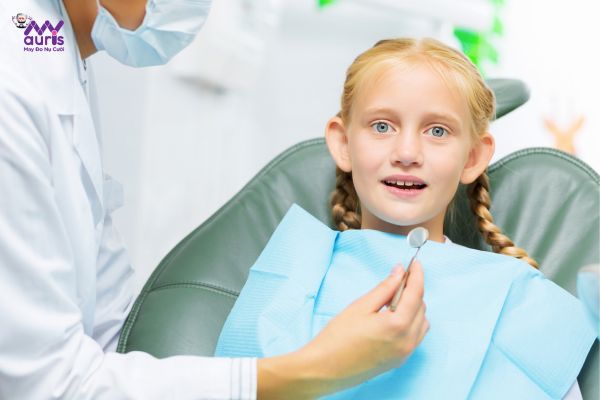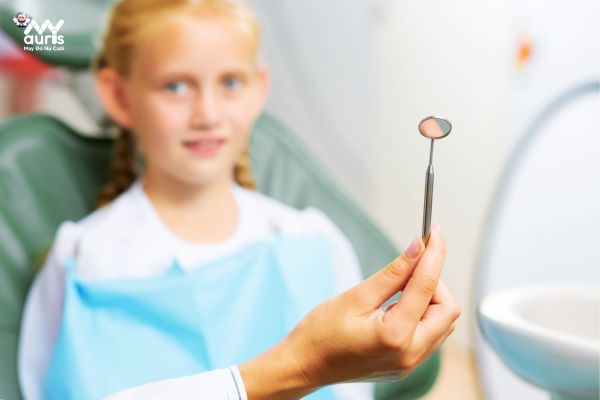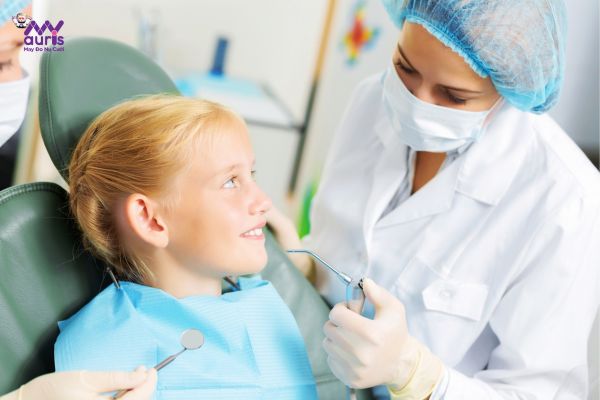The process of changing teeth in children takes place in stages and at appropriate ages. However, children often do not pay attention to oral hygiene, causing their teeth to become diseased and quickly deteriorate. This causes many consequences, even tooth loss. So, if a 13-year-old child has their tooth pulled out, will it grow back? Let’s answer in detail with My Auris through the following article.
In what cases should a 13-year-old child have their teeth extracted?
In theory, children have a period of tooth replacement from 6-12 years old. However, in reality, some children still change their teeth earlier or later than the average age. But in general, by the age of 13, almost all children have completely changed their teeth and 90% of the teeth on the jaw are permanent teeth.
This tooth can be damaged or the tooth structure affected for many reasons. Depending on the cause and condition of the tooth, the doctor will treat it to preserve the real tooth or extract it to protect the remaining teeth in the jaw.
The following are some cases of 13-year-old children having to have their teeth removed:
- Teeth with pulpitis and severe decay cause the tooth crown to be seriously damaged, the tooth cannot be filled and must be extracted to avoid inflammation, infection and death of the pulp.
- The tooth crown is chipped or broken due to strong impact force.
- Extracting baby teeth when the permanent teeth have emerged but the baby teeth are not yet loose
- Children have severe periodontitis and receding gums, causing a lot of tooth roots to be exposed.
- Intruded teeth, affecting adjacent tooth roots.

Therefore, parents should take their children to the dentist periodically to be examined and treated appropriately by a doctor.
a matter of concern to many parents. Because everyone wants their children to keep their real teeth. Furthermore, parents are worried that losing teeth will greatly affect their child’s oral health, aesthetics and chewing ability.
According to doctors, whether a tooth will grow back at the age of 13 depends on each child’s condition.
Up to 90% of 13-year-old children do not have replacement teeth after tooth extraction. Because at this stage, almost all children have replaced permanent teeth on the jaw. Once a permanent tooth is lost, it cannot grow again.
However, the tooth replacement process is different for each child. In fact, up to 10% of children change their teeth late and by the age of 13 still have baby teeth on their jaws. In the case of baby teeth being extracted, permanent teeth will grow to fill the gap and parents do not need to worry.

Thus, whether a 13-year-old child has his or her tooth pulled back will grow back depending on the condition of the tooth and the type of tooth. teeth removed. To protect children’s oral health, parents need to take their children to see a dentist for examination and treatment, to avoid having their children’s teeth extracted at home.
What should a 13-year-old child do after tooth extraction?
Depending on whether the extracted tooth is a milk tooth or a permanent tooth The doctor will have appropriate treatment and restoration. For children who have their baby teeth extracted, permanent teeth usually grow back after about 1-2 months. However, the time it takes for permanent teeth to grow after tooth extraction depends on the nutritional regimen of each child. If the child has a good diet and enough nutrients, especially vitamin D, calcium, etc., permanent teeth will grow faster.
In case of permanent tooth extraction, the doctor will prescribe the use of an appliance to maintain the gap between missing teeth on the jaw. This appliance helps maintain distance and limit tooth misalignment caused by tooth loss. The time to use the appliance is until the child is 18 years old – the appropriate age for dentures. Because at the age of 13, a child’s bone density is not yet qualified for dental implants.

Consequences of early tooth extraction at 13 age
Early extraction of permanent teeth at the age of 13 will cause many health consequences.mouth. Including: Jaw bone loss, loss of aesthetics, shifting teeth and affecting chewing.
Jawbone loss
If no teeth grow after extraction, the jawbone at the location of the lost tooth will no longer have the daily force and will gradually disappear. Jaw bone loss here is a decrease in both bone density and quality.
Normally, after only about 3 months, bone density begins to decrease, causing the jawbone to become spongy, soft and disappear. After about 3 years, the rate of bone loss can be up to 45-60%. Once the jaw bone disappears, it not only causes loss of aesthetics due to facial aging, wrinkled and sagging skin, but also causes the adjacent tooth roots to no longer be stable and gradually become loose. At that time, the child will be at risk of losing more teeth.
Loss of aesthetics
When teeth are lost, especially the incisors and canines, aesthetics will be greatly affected. Meanwhile, at the age of 13, children have an awareness of their appearance and also study and participate in many activities with friends. Therefore, missing teeth will make children less confident and afraid to communicate and smile. If it lasts longer, it will partly affect the child’s personality and academic performance.
Effects on chewing
Any tooth lost on the jaw will cause the chewing function to be impaired. From there, children tend to eat less than usual. In the long term, children will not provide enough energy and nutrition for the body.
At the same time, gastrointestinal diseases are also increasing in children such as colitis, stomach pain,…
Tooth misalignment
In cases where children have their permanent teeth extracted without remedial measures, the teeth The adjacent area will move to the missing tooth space. From there, all teeth become misaligned and cause bite misalignment.
Therefore, parents should not be subjective. When children lose teeth or have teeth extracted, they need to consult a dentist for appropriate remedies.

Hopefully, with the information in the article about 13-year-old children, can their teeth grow back? person who can answer questions. Most importantly, parents should monitor and instruct children on oral care and hygiene and take their children for regular dental check-ups. Please contact My Auris Dental immediately for advice and to schedule an examination as soon as possible for your child.
Anh Thy





